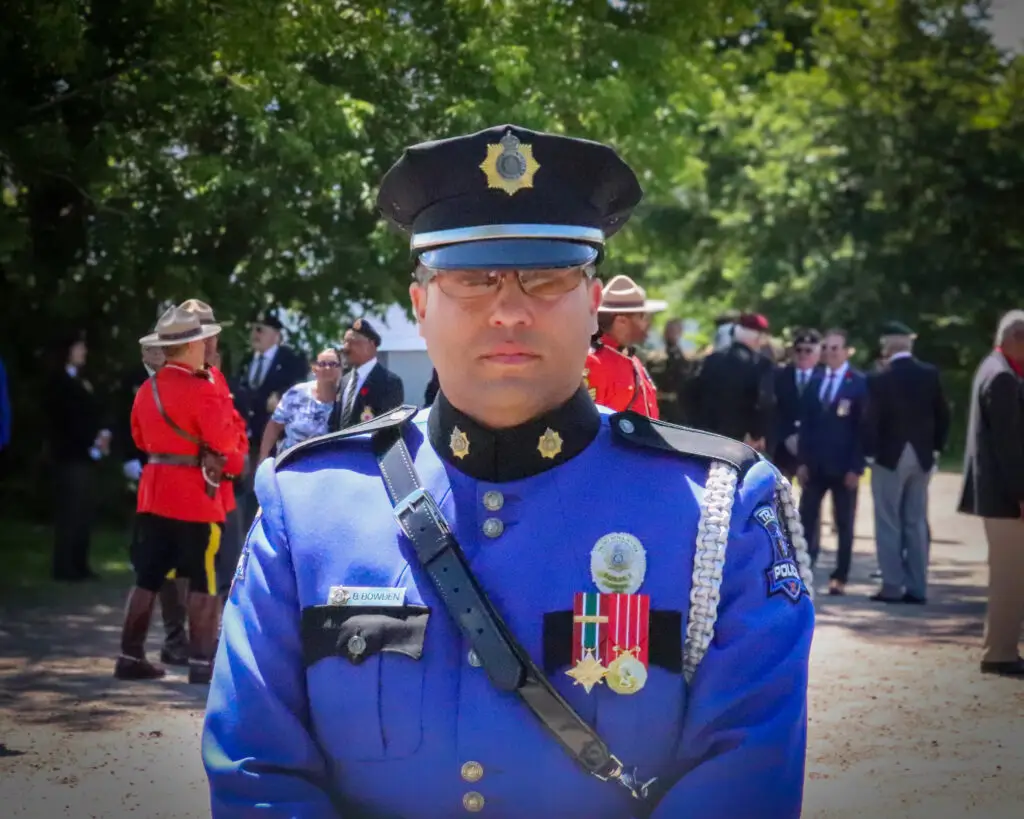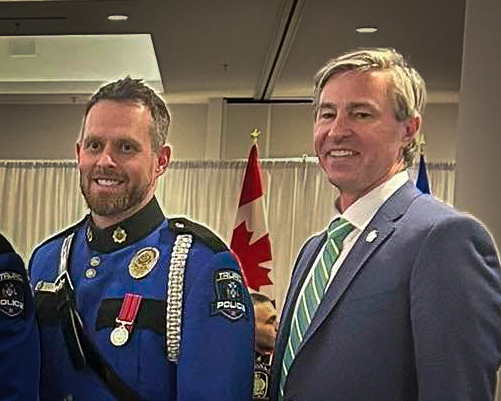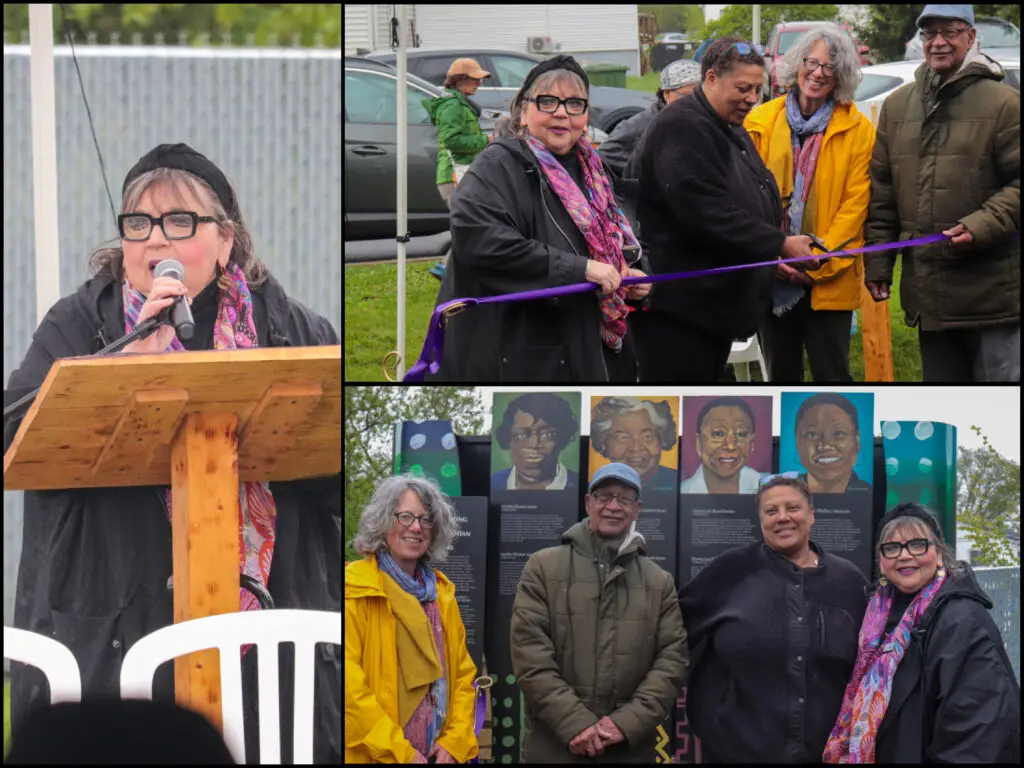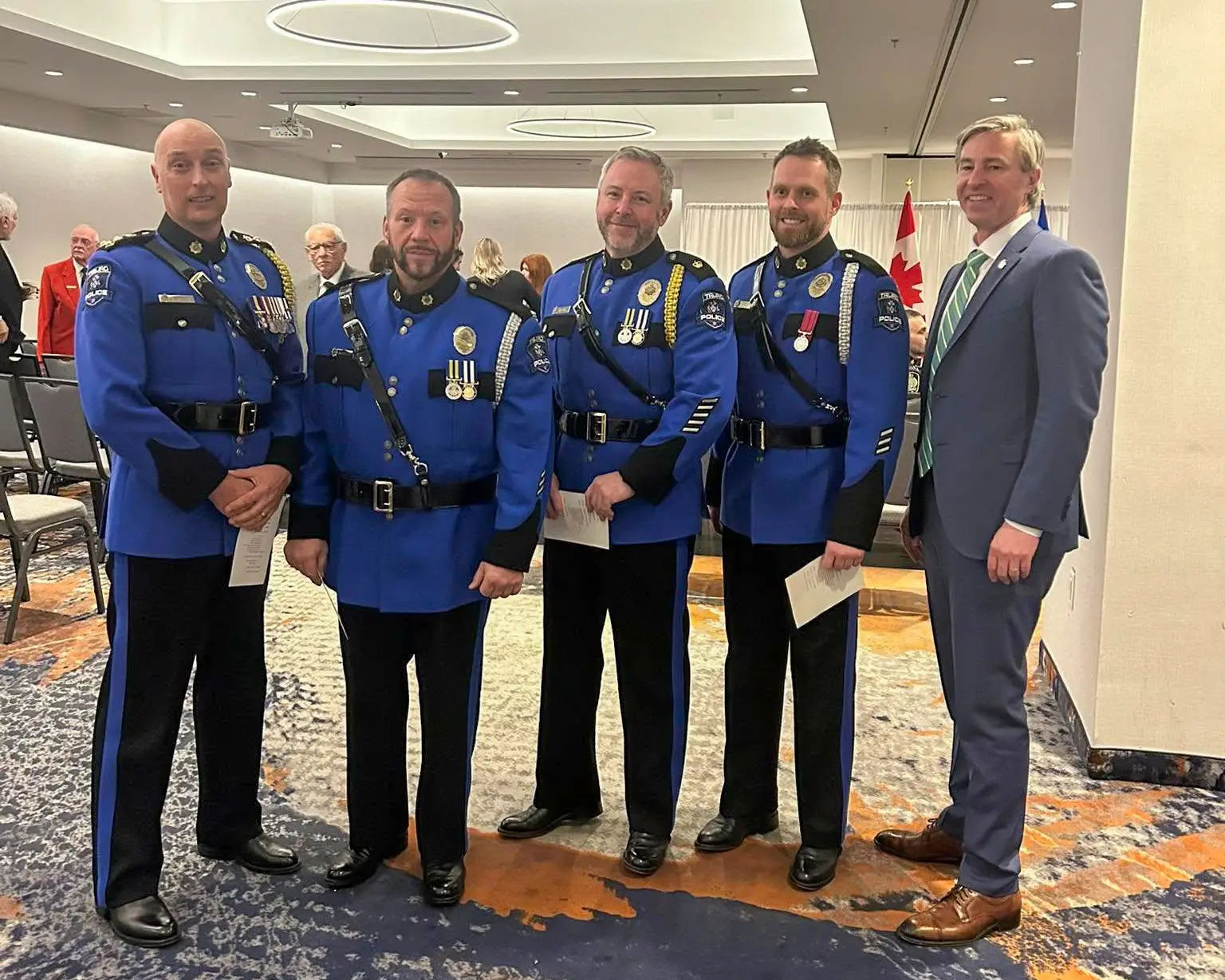
FOR IMMEDIATE RELEASE
Silence is a Statement: Institutional Inaction on Truro Police Incident Speaks Loudly to Black Nova Scotians
June 24, 2025 – Truro, Nova Scotia, Canada
A year has passed since a deeply troubling incident within the Truro Police Service, where a white officer threw a banana peel – a gesture widely recognized as a blatant racist trope – on the personal vehicle of a Black fellow officer.
He did this in the presence of another white officer who did not intervene or report the incident.
This alone demands scrutiny and accountability.
The subsequent claims made by the Black officer of insufficient disciplinary measures taken against the white officers further exacerbate the gravity of this situation.
But what is even more telling is the sustained silence and inaction from the institutions responsible for ensuring public trust, racial equity, and justice.
The Truro Police Service, the Atlantic Police Association of Nova Scotia, the Mayor and Town Council, the local MLA, the Nova Scotia Department of Justice, the Office of African Nova Scotian Affairs, the Premier of Nova Scotia, and large segments of the mainstream news media have failed to respond publicly, transparently, or in a timely manner.
Silence in the face of this incident sends a loud, painful, and dangerous message to Black people in the province, intentionally or not.
It says:
1. That Anti-Black Racism Isn’t Taken Seriously
When institutions choose not to speak out or act, it tells Black people that their pain isn’t urgent, that their safety is negotiable, and that anti-Black racism isn’t a priority, especially when it occurs within systems of power. It says that racism might be acknowledged when it’s convenient, but ignored when it implicates the people who uphold or benefit from those systems.
2. That Black Lives Are Not Worth Public Defense
Silence in response to a blatantly racist act in a workplace as serious as a police department implies that protecting white reputations matters more than protecting Black dignity. It sends the message that Black lives can be quietly humiliated without consequence, and that those in power will not risk political capital to stand beside Black people, especially when it truly counts.
3. That Systems Protect Their Own – Even When They’re Wrong
When police, political leaders, and departments that claim to serve all citizens fall silent, it confirms the belief many Black people already hold: these systems are more committed to self-preservation than to justice. It reinforces distrust, alienation, and the justified sense that these systems were never built for us in the first place.
4. That Black Officers Aren’t Safe in Their Own Institutions
If a Black police officer – someone inside the system – cannot receive justice or even acknowledgment when a racist act targets them, then what message does that send to the everyday Black citizen? It says: “You’re not protected here. And if it happens to you, don’t expect help.”
5. That Words Like ‘Equity’ and ‘Reconciliation’ May Be Hollow
Many of these institutions and leaders have made public commitments to racial equity, anti-racism, or “healing” relationships with Black communities. Silence now calls into question the sincerity of those commitments. It says, “We’ll talk about equity when it’s comfortable. But don’t expect action when it’s hard.”
6. That Anti-Black Systemic Racism Isn’t Newsworthy
Silence on behalf of the news media sends a clear message that: “Anti-Black racism is not newsworthy unless it fits a particular narrative. Even blatant, documented misconduct may be ignored.”
7. That Black People Are Expected to Tolerate Harm – Again
Most painfully, silence tells Black communities: “Swallow this. Move on. Don’t make a big deal.” It puts the burden back on the people who were harmed to be “reasonable,” “patient,” or “quiet.” That’s a historical pattern of erasure – and one that Black Nova Scotians have resisted for centuries.

Far From Harmless
The banana peel is not a harmless object. It is a long-standing, racist symbol used to dehumanize Black people, rooted in anti-Black caricature and violence. This is not a joke, nor should it ever have been treated as such. The fact that the incident occurred within a law enforcement agency and was reportedly caught on surveillance video only magnifies its seriousness.
What compounds the harm, however, is the apparent effort to conceal or minimize the incident rather than to address it with transparency and accountability. The reported comment from the Chief of Police – laughing and saying “imagine if this got out” – suggests a preoccupation with optics over justice. Shutting down comments on the department’s social media pages once the incident became public sends a clear message: that community voices, especially Black voices, are not welcome in matters that directly affect them.
To date, the Truro Police Service has failed to:
- Publicly name the officers involved
- Clearly explain why no formal discipline was issued
- Acknowledge the racial implications of the act
- Demonstrate that this is being treated as a matter of institutional concern, not interpersonal misunderstanding
This silence is not neutral – it is damaging. It sends a message to African Nova Scotian residents, including Black officers on the force, that racism may be quietly tolerated, protected, or dismissed behind closed doors.

A Racial Advisory Board Ignored
Making this situation even more disheartening is the existence of the Town of Truro’s Racial Equity Advisory Committee. This board was established to advise the council on matters of racial equity and justice. Despite the gravity of this incident, the board was neither consulted nor informed of its developments throughout the investigation. Half of the board’s members are Black, yet they were left in limbo, expected to respond to the Black community without having been given any answers themselves.
What does it say about institutional commitment to racial justice when a racial advisory board is sidelined during a crisis rooted in anti-Black racism? It says these boards are performative. It says Black voices are included for optics, not for impact. And it deepens the sense of abandonment and betrayal that many Black residents already feel when engaging with public systems.
This act of exclusion does not exist in a vacuum – it compounds frustration and fuels ongoing distrust. It tells us that even when Black people are formally brought to the table, we’re still not heard when it truly matters.

Tone-Deaf Public Relations
Further compounding the harm is the recent public display by the Truro Police Service at a “Rally Against Racism to raise awareness and to help foster change in the community” event. This event was held in the same square where a Black Lives Matter rally took place in the wake of George Floyd’s murder.
Rather than acknowledge the racial tensions caused by their inaction, the department chose instead to promote a feel-good photo opportunity with no mention of the incident at hand. This decision, made while comments on the post remain disabled, reflects a deep institutional tone-deafness. It sends a message that the Truro Police are more invested in image management than in racial accountability.
To stage a celebration of “unity” while Black residents still await justice is not just insensitive – it is gaslighting.
It reveals a troubling comfort with performative solidarity when it’s convenient, and an equal discomfort with engaging Black pain when it’s inconvenient.

Next Steps
As Black organizations and as Black people rooted in the pursuit of justice for Black Nova Scotians, the Community Enhancement Association (CEA) of Truro, and the African United Baptist Association (AUBA) call on the Truro Police Service to publicly and unequivocally:
- Acknowledge and explain the incident and explain why it was, or was not, a racially charged act
- Explain the disciplinary decision and disclose the specific rationale behind the lack of formal disciplinary measures
- Acknowledge the racist symbolism
- Commit to an independent external review of the incident and the internal culture that allowed it to be minimized
- Acknowledge and address the social media muzzling
- Engage the African Nova Scotian community – including legal and cultural leaders – in a transparent accountability process
We also call on all Black organizations and Black people in Nova Scotia to stay informed and to join us in calling on the Truro Police Service, the Atlantic Police Association of Nova Scotia, the Mayor and Town Council, the local MLA, the Nova Scotia Department of Justice, the Office of African Nova Scotian Affairs, the Premier of Nova Scotia, and large segments of the mainstream news media, to deeply reflect on what it means to proclaim alignment with racial justice, Black communities, and anti-racism, all while remaining silent or defensive in moments that test those commitments.
If you claim to stand with the African Nova Scotian community, your response to anti-Black racism cannot be conditional, delayed, or quiet.
Silence is not neutral. It is complicity. And the harm it causes is lasting.
This is not merely about one act. It is about the pattern of how anti-Blackness is downplayed, hidden, or ignored in the very institutions that claim to protect and serve. Public trust, particularly among Black communities, cannot be rebuilt through silence, vague statements, or social media control. It is earned through transparency, accountability, and structural change.
We call on every institution named to break their silence – with truth, with accountability, and with urgency.
Regards,
Rev. Dr. Elias M. Mutale
Moderator African United Baptist Association on behalf of the Association executive.
&
The membership of the Community Enhancement Association (CEA) of Truro

